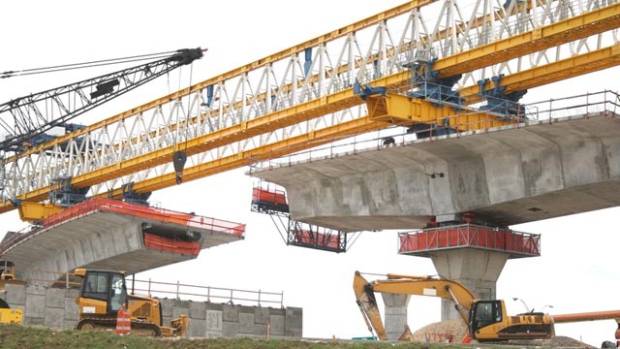Jun 15, 2017
Canada Infrastructure Bank nears selection of chairperson

The Liberal government’s special advisor for the proposed Canada Infrastructure Bank has recommended who should chair the organization that's already emerged as a lightning rod for controversy before it even opens for business.
“Recommendations have been made,” former Ontario Teachers’ Pension Plan CEO Jim Leech told BNN in a television interview on Thursday. Leech is serving as a special advisor to Prime Minister Justin Trudeau on the bank’s creation. “We’re well on our way to selecting those people, all subject to, of course, the bank being passed.”
A number of stakeholders have a say in the chairperson selection process, including the Privy Council Office, Infrastructure Minister Amarjeet Sohi and Finance Minister Bill Morneau.
BNN previously reported that more than a half dozen women and men were being considered for the high profile position. The front-runner candidates were said to have diverse leadership backgrounds and board experience. An official announcement regarding the selected candidate could be made by the end of June, according to two people with direct knowledge of the matter.
The government has committed to launching the infrastructure bank by the end of the year, despite a political firestorm that has threatened to derail its rollout. “What they are doing is effectively asking hardworking Canadian families to co-sign loans to corporations, hedge fund managers and international investors,” Andrew Scheer, the new leader of the Conservative Party of Canada, said during a speech on Thursday to the Economic Club of Toronto.
Legislation for the bank is included in Finance Minister Bill Morneau’s budget bill, C-44. A best-case scenario for the Liberal government would see that bill passed by the end of this month, setting the stage to possibly launch the bank as early as November. However, independent Senator André Pratte introduced a motion in the upper house this week that would remove the bank from bill C-44, to allow for more time to study the bank’s benefits.
The government cannot officially appoint a chairperson until legislation passes. If bill C-44 passes, it would open the door to hire both the chairperson and the bank’s board of directors, which is expected to include between 8 and 11 directors. The chair will play a key role in selecting the bank’s CEO. As BNN previously reported, the government is working with executive search firm Odgers Berndtson to find CEO candidates from around the world.
“If it’s delayed by six months or a year, it’s a delay. My concern would be we do have first mover advantage in this country right now,” Leech said during his BNN interview. “We were the first people ever to create the type of pension plans we have now and we lead the world. We led the world in [public-private partnerships] and have by far the best reputation in P3s. And this this is an opportunity to show the rest of the world how to do the priming of the pump to get more infrastructure built for Canadians.”
Canada’s infrastructure opportunity was echoed this week by billionaire financier David Rubenstein, CEO of The Carlyle Group.
“ I think Canadian investors are much more experienced than the American investors in investing in infrastructure. In the United States we’ve been struggling for years to come up with a good way to get the private sector involved in infrastructure,” he said. “President Trump has talked about that, but so far there’s no legislation. So, I think if people were interested in investing in infrastructure in North America, there’s probably more opportunities, honestly, in Canada.”
Morneau originally unveiled the government’s plan to create the bank during last fall’s economic update, following a recommendation from his Advisory Council on Economic Growth. The bank is expected to help fund massive infrastructure projects in Canada by attracting large institutions from around the world as partner investors. Its goal is to leverage up to five dollars in private money for each dollar the federal government puts in.
As for whether a delay in the bank’s approval would come at a risk to the Canadian economy, those who support a slower rollout are skeptical.
“Why have we failed in some of our other projects? We don’t do enough front-end due diligence,” former Parliamentary Budget Officer Kevin Page told BNN in a recent television interview. “Is there a potential hit on the economy because the bank doesn’t get launched in 2017? I just don’t see where the big hit in the economy would be right now.”
Editor's note: An earlier version of this story indicated the government had identified the Canada Infrastructure Bank's chairperson. In fact, the special advisor's recommendation is still subject to approval by the government.
